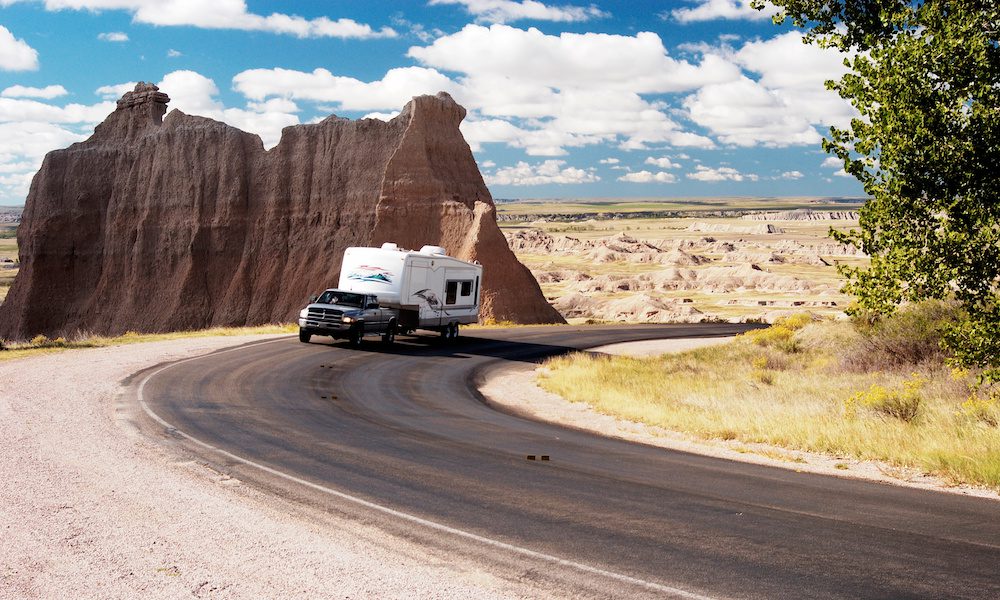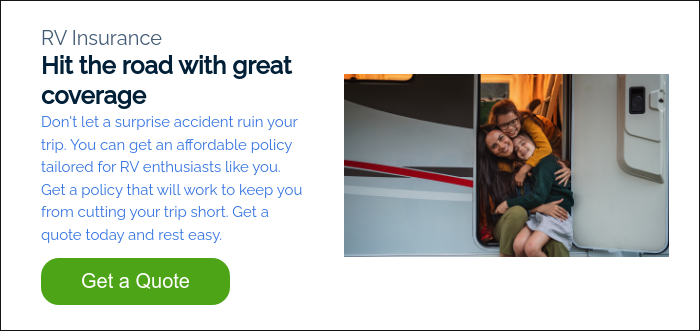How to Choose RV Insurance Coverage for Your Travel Style
July 25th, 2025
4 min read

Owning an RV opens up adventures across Central New York and beyond, but choosing insurance coverage can feel overwhelming. You want coverage that fits your specific travel patterns and RV type, but the options and requirements can be confusing. Making the wrong choice could leave you with gaps in coverage or paying for options you don't need.
At Horan, we have been connecting CNY residents with RV insurance policies for years. We know the ins and outs of the RV industry and the challenges RV owners face. We can help you explore coverage options and discuss how to make your coverage fit your RV. It matters how you use your RV, where you go, and more.
This article is written to help you understand how to choose RV insurance coverage for your travel style. It will also cover what to consider when you look for a policy. You may have a small or big RV. And you may use your RV part-time or full-time. Keep reading to learn more about your options.
Understanding RV Insurance Requirements for Motorhomes Versus Towable Trailers
One of the first things to consider when choosing RV insurance is your travel style. How often do you use your RV? Where do you go? How long do you stay? These factors can affect the type and amount of coverage you need. In Central New York, people have different types of RVs to suit their travel preferences.
Some of the common ones are fifth wheels, travel trailers, pop-up campers, and others. These are RVs that you pull behind a vehicle, which is why they’re called tow behinds. They’re not registered for road use, and they don’t need a separate auto insurance policy. The policy of the vehicle that is towing the RVs also covers them. But a motorhome is different from these RVs.
A motorhome is an RV you drive. It has its own engine and wheels. Since the DMV registers it for road use, it requires a full auto insurance policy. Another vehicle's policy doesn't provide coverage for motorhomes.
Essential Insurance Coverage for Tow Behind RVs
As an RVer, you know that different types of RVs suit different travel styles. For this article, we’ll focus on tow behinds: RVs you pull with another vehicle. These RVs are not self-propelled and don’t carry liability insurance. You can only obtain coverage for property damages that might occur to your tow behind RV, including:
- theft
- vandalism
- fire, or
- collision
That's why you may want to consider comprehensive and collision coverage for your RV. These coverages may pay for repairs or replacement of your tow behind RV. They can provide coverage for damage from events you can't control or collisions with other vehicles or objects.
 How Comprehensive Coverage Works for RVs
How Comprehensive Coverage Works for RVs
Say you love taking your RV to the Adirondacks. You enjoy the natural beauty of the mountains, lakes, and forests. Parking your RV among the trees so you can go fishing and hiking during the day is a routine. You feel relaxed and happy in the wilderness.
But one day, you return to your RV after a long hike and find a shocking sight. A tall tree has fallen on your RV and crushed it. The tree caved in the roof, shattered the windows, and destroyed the interior. You’re stunned and devastated. Your RV is your home away from home, and now it’s ruined. You have no place to sleep for the night and no way to tow your RV back home.
What do you do in this situation? Who do you call?
The answer could be comprehensive coverage.
It may help you pay for the repair or replacement of your RV. It can provide coverage for damage from events you can't control, such as falling objects like trees.
How Collision Coverage Works for RVs
You’re excited to visit a new campground far from home. You’ve heard great things about it, and you want to explore the area with your RV. You’re towing your RV with your truck, and you’re following the directions to the campground.
There’s a sharp turn up ahead. When you come to it, you think you can make it. So you slow down and turn the wheel. You don’t see the low tree limb hanging over the road. You pull through with confidence. The tree limb scrapes the entire side of your RV, creating serious damage.
You hear a loud noise and feel a jolt. You stop and get out of your truck. What you see shocks and upsets you. Your RV has a dent, scratches, and a huge tear. You’ve hit something while towing your RV.
What do you do in this situation? Who do you call?
The answer could be collision coverage.
It may help you pay for the repair or replacement of your RV. It can provide coverage for damage from a collision with another vehicle or object.
With comp and collision, you can call your insurance carrier. They'll send an adjuster to assess the damage. Then the insurer may pay you based on your policy terms for your repairs.
After an accident, you can have support in your situation. You may have someone to help you deal with the damage and potentially get you back on the road. You can also potentially save yourself from paying thousands of dollars out of pocket for a new RV or a major repair, depending on your coverage.
Comp and collision coverage are optional. But they may make a difference in your RV travel experience. They may provide coverage for you against unexpected events that can damage your RV and affect your trip.
Choose RV Coverage That Fits Your Travel Style
RVing offers a great way to enjoy the beauty and diversity of Central New York and other parts of the country. You can visit amazing places, meet new people, and have fun with your family and friends. But RVing also comes with some risks and challenges.
You never know what might happen on the road or at the campground. Consider being prepared by having suitable coverage for your RV.
If you have comp and collision coverage for your RV, you may be able to travel with more confidence. You can explore the states while having coverage in case of an accident or a mishap, subject to your policy terms.
But if you don't have these coverages, you may face expenses if your RV gets damaged. You may have to pay costs out of pocket for a new RV or a major repair. This could affect your trip and your RV.
Consider selecting RV coverage that fits your travel style with comp and collision coverage options. They're optional, but they may be worth considering.
To explore RV coverage options that may fit your situation and budget, click the Get a Quote button below. One of our RV insurance professionals will contact you to discuss your options.
Want more insights on RV insurance? Learn how to save money on your CNY policy without sacrificing coverage.
Daniel is an accomplished content creator. He has been working in publishing for almost two decades. Horan Companies hired Daniel as its content manager in November 2022. The agency entrusted its messaging to him. Since then, Daniel has written insurance articles, service pages, PDF guides, and more. All in an effort to educate CNY readers. He's helping them understand the world of insurance so they can make informed decisions.
Topics:



